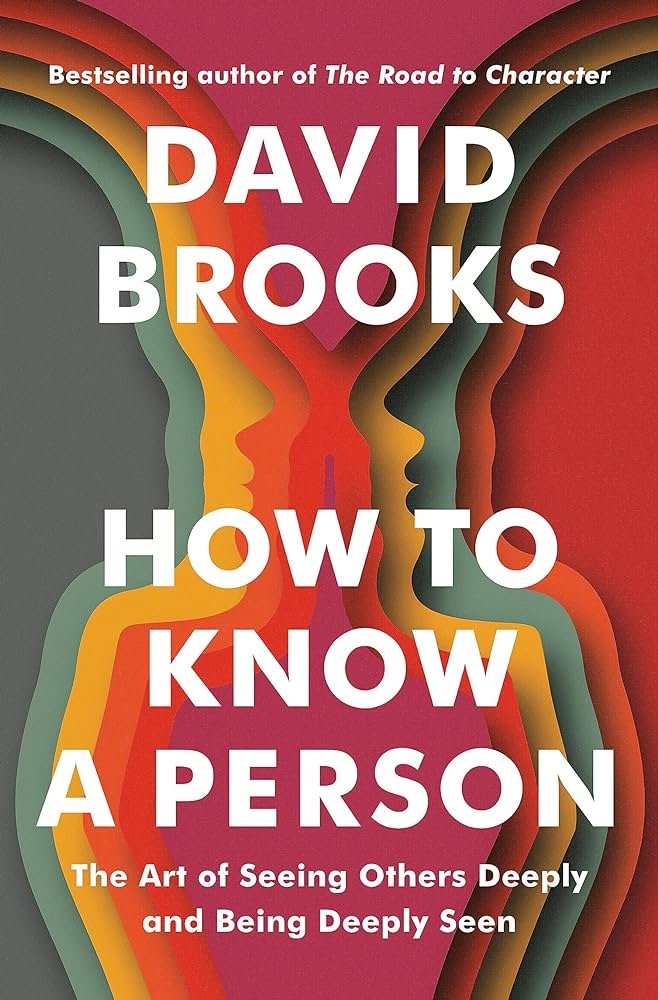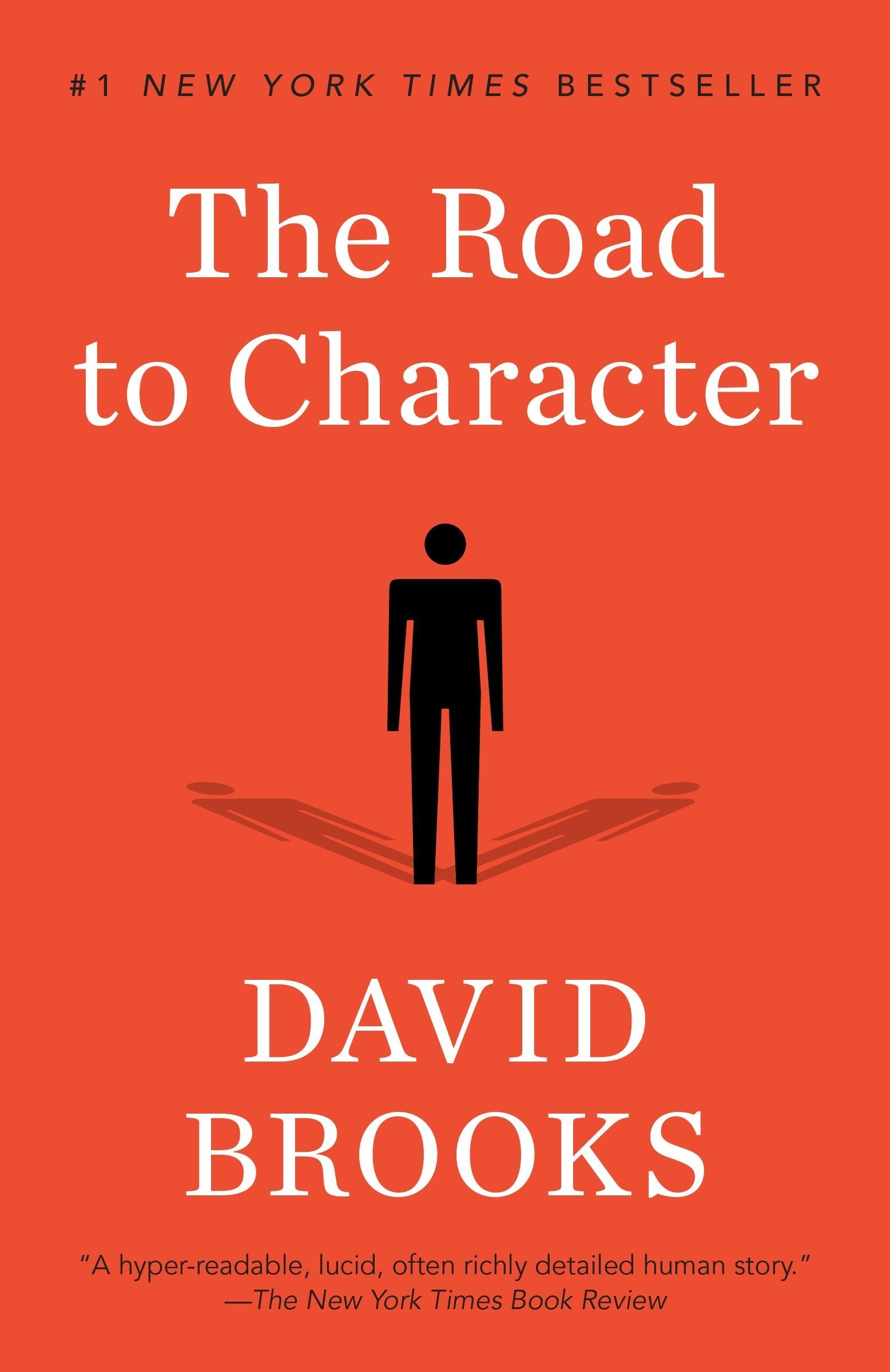How to Know a Person: The Art of Seeing Others Deeply and Being Deeply Seen by David Brooks
Date read: 11/20/23. Recommendation: 8/10.
David Brooks has been my favorite author this year—his focus on the messiness of life and learning to invest more of yourself in what matters just hits differently as you get older. I absolutely loved The Road to Character and enjoyed this latest book just as much. As Brooks observes, “There is one skill that lies at the heart of any healthy person, family, school, community organization, or society: the ability to see someone else deeply and make them feel seen…” And to be clear, most of us suck at this. Myself included. But Brooks offers a practical guide and exploration of how we can try to develop one of the most important skills we can invest in—learning how to truly see and illuminate another person.
Check out my notes below or Amazon for details and reviews.
My Notes:
The power of being seen:
“There is one skill that lies at the heart of any healthy person, family, school, community organization, or society: the ability to see someone else deeply and make them feel seen—to accurately know another person, to let them feel valued, heard, and understood.” David Brooks
“In how you see me, I will learn to see myself.” David Brooks
“The purpose of this book is to help us become more skilled at the art of seeing others and making them feel seen, heard, and understood.” David Brooks
“To be able to understand people and be present for them in their experience—that’s the most important thing in the world.” Mary Pipher
Pitfalls:
“On social media you can have the illusion of social contact without having to perform the gestures that actually build trust, care, and affection. On social media, simulation replaces intimacy. There is judgment everywhere and understanding nowhere.” David Brooks
“Politics doesn’t make you a better person; it’s about outer agitation, not inner formation. Politics doesn’t humanize. If you attempt to assuage your sadness, loneliness, or anomie through politics, it will do nothing more than land you in a world marked by sadistic striving for domination. You may try to escape a world of isolation and moral meaninglessness, only to find yourself in the pulverizing destructiveness of the culture wars.” David Brooks
Illumination:
“Respect is a gift you offer with your eyes.” David Brooks
“Nothing in life is of any value except the attempt to be virtuous.” Iris Murdoch
Interpretation:
“Experience is not what happens to you, it’s what you do with what happens to you.” Aldous Huxley
Stop asking “What happened to this person?” Start asking “How do they interpret what happened? How do they construct their reality?”
“We do not see things as they are, we see things as we are.” Anaïs Nin
“A person is a point of view. Every person you meet is a creative artist who takes the events of life and, over time, creates a very personal way of seeing the world.” David Brooks
“Life isn’t about finding yourself. Life is about creating yourself.” George Bernard Shaw
Identity:
If you find what is sacred to a person, there you will find rampant irrationality (paraphrasing psychologist Jonathan Haidt). “A person with an overreactive defense architecture is thinking, My critics or opponents are not just wrong, they are evil.” David Brooks
“Without your wound where would your power be? It is your very remorse that makes your low voice tremble into the hearts of men. The very angels themselves cannot persuade the wretched and blundering children on earth as can one human being broken on the wheels of living. In love’s service only the wounded soldiers can serve.” Thornton Wilder


